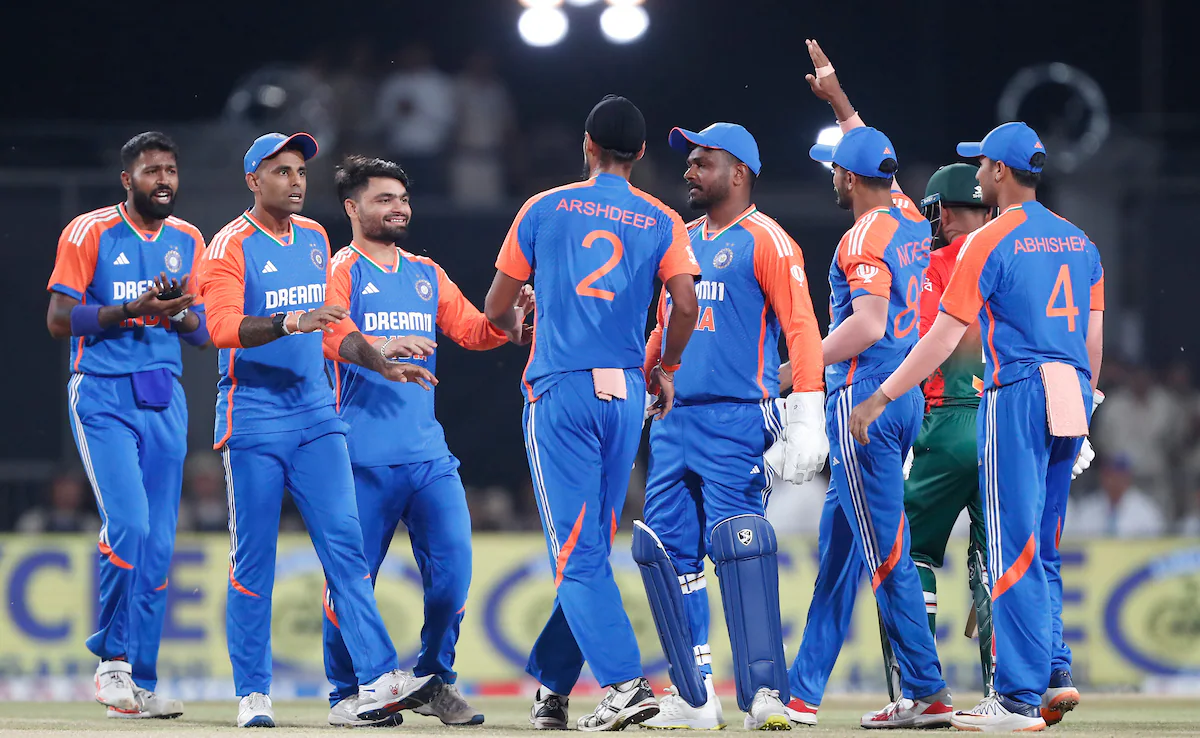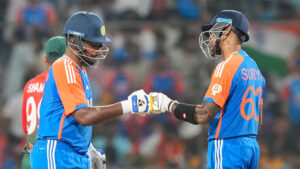India’s T20I skipper Suryakumar Yadav is near to achieving a major milestone, which can level his record in the shortest format with Indian veteran cricketer, Virat Kohli.
Suryakumar Yadav is now only 39 runs behind the likes of the great Virat Kohli, to become the joint second-fastest batter in the World to have reached the milestone of 2500 runs in International T20 cricket.
The Indian legend Virat Kohli retired from international T20s, following India’s triumph in the T20 World Cup of 2024 in the United States. The legend scored 4188 runs in his entire illustrious career, with the 2500 runs coming within his 73 international innings.
Surya now has played 72 innings for India with 2461 runs under his belt, including four hundreds for the team as well. SKY already eyes Rohit’s record for most T20I hundreds for India and now he looks to match Virat Kohli’s record as well as he is just 39 runs behind the great feat.
An account of the First T20I clash between India and Bangladesh

The first T20I match between India and Bangladesh was played at the Gwalior Stadium, which brought cricket back to the city after decades.
This time India won the toss, as SKY pushed the visitors to bat first, with Arshdeep Singh sharing the new ball alongside Hardik Pandya. Arshdeep excelled as he produced three wickets in the game. He also reached the milestone of being India’s first-ever pacer to pick 100 T20I wickets.
Also, the spinner who marked his return, Varun Chakravarthy, went on to pick three wickets. Mayank and Pandya also bowled brilliantly and thanks to the combined effort, Bangladesh were restricted to a minor 127 runs.
India played with aggressive intent in pursuit ot the target. Despite wickets falling, they kept attacking and put the pressure back on to the visitors.
Suryakumar Yadav added vital 29 runs off just 14 balls before getting holed out in the deep. Hardik Pandya played a sensational unbeaten 39-run cameo of just 16 balls to help India secure a 7-wicket victory, as India took an early lead in the series at Gwalior.




